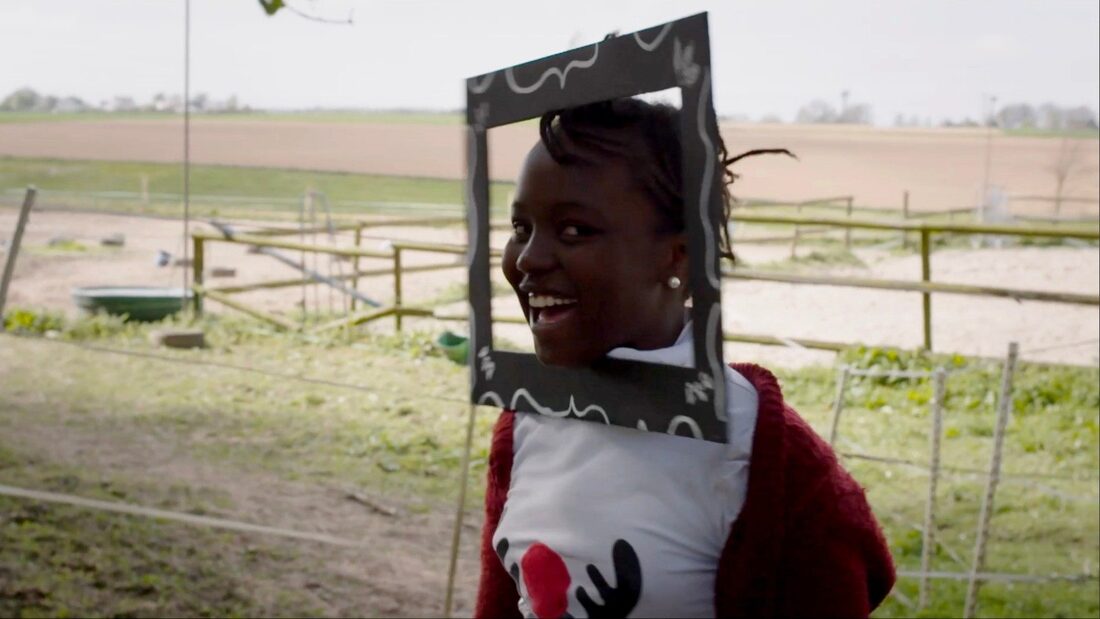|
by Cambria Meadows Un Film Dramatique is a film by Eric Baudelaire which features the lives of twenty middle-school students from Dora Maar Middle School within Saint-Denis, France — part of BAMPFA’s Documentary Voices series. Although I originally viewed this film for a class, I found myself casually thinking about it on my own time after I had watched it, making me realize how much of an impact the film had on me. A lot of the time, I feel like documentaries attempt to tackle heavy points of contention, and rightfully so. But, what I liked about this film in particular was its ability to address both social and political issues while also maintaining a sense of innocence and light-heartedness, indicative of the 11-14 year olds’ attitudes.
The film’s collaborative aspect between the filmmaker and the young subjects is an essential element of the film, as the space created allows students to not only speak their minds, but also to wield cameras themselves. I think using both footage of the students as well as diary-like videos made by them enables the film to feel very genuine — the audience getting both an outside and inside look into their thoughts. In some of the interview-style footage, it’s inspiring to hear these students have such complex opinions about ideas like racist intentions and the idea of origin; when I was 11 I think the most complicated thing I thought about was pre-algebra. The childrens’ expressive tones and gestures show their convictions on such topics, and they speak with such ease yet sureness. This ability to speak so freely can be attributed to their young age and their carefree mindset, ironically the characteristics which keep them excluded from such conversations with adults normally. Another intriguing aspect of this film to me was the childrens’ role in becoming filmmakers themselves -- Baudelaire allowing them to take cameras home and use them on their own. Baudelaire encourages these kids to film anything, so we see moments like car conversations with parents, dancing and singing, and one girl showing us her pasta-making regimen. Although these clips formally vary from the interview-like conservations the children have when the filmmaker is present, the one continuous line connecting all of the footage is their vulnerability and their ability to open up about anything on their mind, showcasing whatever they want to the camera. Not only does the film allow us to see the kids’ ideas develop in various ways, but we see them actually grow up as well; by the end of the film the students still participating look noticeably older. This film does an excellent job at depicting the complexities of childhood and allows the voice of the film to become intertwined with the student’s own voices, so you feel like you’re hearing them instead of some overarching message. Watching this documentary made me consider childhood and the idea that one day we lose it even though we don't explicitly realize it. This unnoticeable shift becomes visible through the children in the film, as towards the end they begin to censor the way they speak more, one girl redoing one take a number of times. Although the awareness we gain with becoming older is good, I also wonder how it can be detrimental. Even though we can’t time travel back to our own childhoods, this film allows a glimpse into others’. I’m keeping my fingers-crossed about time-travel coming into fruition, but if it never does, this film is a great way to get a piece of that.
0 Comments
Leave a Reply. |
Archives
March 2024
Writers
All
|
